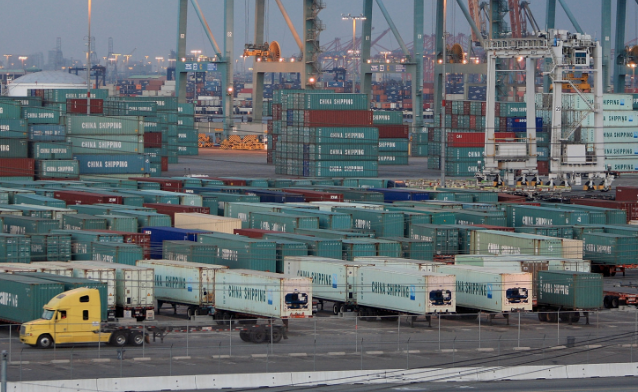
Toward the start of the twentieth century, John Mitchell, “the boy president” of the United Mine Workers, raged into the anthracite locale and persuaded diggers, came up short on and abused, that the coal they mined wasn’t “Servile, Polish or Irish coal, it’s coal.”
At the point when on Sept. 17, 1901, the UMW issued a call to strike, in excess of 125,000 excavators strolled off the activity. At the vanguard were mine workers in the Lehigh and Schuylkill fields. It was a long, intense strike that hurt everybody. Mine workers lost their wages, stores shut, whole families needed to go to work, procuring scarcely enough to survive. Numerous left the district to look for occupations somewhere else and stayed away forever.
At the point when the strike was at last settled in March 1903, mine workers got a 10-percent wage increment, a sliding pay scale and an 8-hour workday for a few classes of excavators. Arguing the mine workers’ motivation before the Anthracite Coal Commission, the national board gathered by President Theodore Roosevelt to parley, Clarence Darrow, “lawyer for the accused,” Broadcast that, most importantly, excavators had won a good and otherworldly triumph
“They (budgetary interests, for example, those of J. P. Morgan, controlling the mines) are battling for bondage, while we are battling for the opportunity. They are battling for the administer of man over man, for tyranny, for murkiness, for the past. We are endeavoring to develop man. We are working for majority rule government, for humankind, for the future…”
In France, this month has turned into a month of strikes: railroad and carrier laborers, government workers and understudies have strolled off the activity or out of the classroom to dissent government arrangement and make their requests heard. Aircraft specialists are requesting higher wages. Railroad laborers and understudies are battling for the protection of what they call “le modèle Republican,” a model of open administration and equivalent open door speaking to the beliefs of the French Republic.
President Macron does not share my conviction, and this might be the essence of current strikes, in spite of the fact that everything began with the SNCF, the French national rail organization. The president and his greater part in Parliament have voted to put a conclusion to the “extraordinary status” of rail laborers, first set up in 1909, however impressively altered since. This implies railroad specialists can resign sooner than the national retirement age of 62; they have 28 days of paid excursion every year (the normal in France is 33) and once they’ve finished a long preparing and trial period, they are ensured work forever.
Asserting to complete mandates issued by the European Union, the administration has voted to privatize traveler benefit in France in 2020 and put a conclusion to the “extraordinary status” for newcomers around the same time. The law likewise contains numerous specialized segments concerning the lawful status of the SNCF and the installment of the organization’s broad obligation, due in substantial part to the advancement of the TGV, rapid trains.
With the exception of pros, few can really get a handle on, as the French get a kick out of the chance to state, “the complexities of the dossier.” Yet, concerning the strike of the “cheminots,” railroad specialists, everyone has an assessment, and this might be on account of something different is in question. Numerous vibe Macron’s legislature has pronounced war on “le benefit open” and “le modèle Republican.”
For the whole month of April, my college has been shut by striking understudies. For me, this has implied being stuck to my PC, doing a large portion of my work on the web. My eyes, neck, and wrists are throbbing, however this might be a surprisingly beneficial turn of events: the trains that convey me forward and backward to work have been crossed out in view of the rail strike.
Striking understudies are dissenting what they dread will turn into an arrangement of particular admissions to enter college. At present, state-funded colleges are available to anybody with the French secondary school certificate called “le baccalauréat.” At the finish of secondary school, understudies all finished France take a progression of national exams. In the event that they pass, they have ensured a place in a college where their training is essentially free.
From my experience, the first-year college examines in France frequently transform into a free-for-all, prompting the survival of the fittest, a regular choice that roots out around 66% of new understudies. Starting this year, understudies will apply, much like in the USA, and spots will be restricted from the begin. For some understudies, this puts a conclusion to their equivalent chance to contemplate what they pick, where they pick, similar to the past.
In 1902, mine workers went on strike for nobility and goodness. Today, life is less demanding, yet the issues worth battling for are less obvious. Macron needs to change France. He is pushing through new laws, for the college, the national rail framework and substantially more, leaving the French staggered by the speed of progress. Looking to put benefits in the hands of the private segment, he is depending on venturesome people to “make France awesome once more.”
On the off chance that he succeeds, he’ll genuinely shake up le modèle Republican. He is unquestionably “working for the future,” however the truth will surface eventually on the off chance that he is likewise “working for majority rule government and humankind,” to reverberate Clarence Darrow’s words.